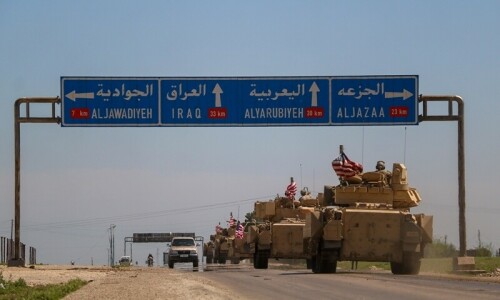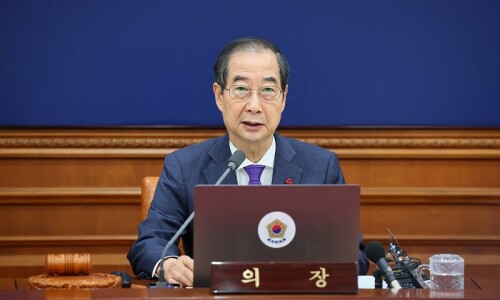LONDON: Newly-declassified UK government documents published on Tuesday reveal the frustrations of then-prime minister Tony Blair and his government with French leader Jaques Chirac for blocking UN-backed military action in Iraq in 2003.
Minutes of an emergency cabinet meeting on March 17, 2003 — a week after Chirac said he would veto any resolution approving military action — showed UK ministers agreed “the French attitude had undermined the mechanism of the UN to enforce the will of the international community.”
“We had tried our utmost” but the French “were not prepared to accept that if President Saddam Hussein of Iraq did not comply with UN obligations, military action should follow,” Blair told the meeting, according to files released by the National Archives.
Britain joined the US-led military action to oust Saddam in 2003, despite fierce opposition across the country, with Blair highlighting allegations that the Iraqi dictator had stockpiled weapons of mass destruction.
The WMD accusations fuelled by the administration of then president George W. Bush were later proven to be false.
According to the files, then foreign minister Jack Straw told cabinet “effectively, one member of the UN Security Council had torpedoed the whole process”, and accused Chirac, who died in 2019, of deciding to “open up a strategic divide between France and the UK.”
In a meeting three days later, Straw said Chirac “appeared to be positioning himself … (to) become leader of one side of the bi-polar world he advocated,” in contrast to a US-dominated world.
By contrast, ministers were told in the March 17 meeting that the Labour government “was motivated by a world view which promoted justice, good governance and pluralism and this set it apart from other governments of the industrialised world.”
The final minute of the meeting read: “Summing up, the prime minister said that the diplomatic process was now at an end; Saddam Hussein would be given an ultimatum to leave Iraq; and the House of Commons would be asked to endorse the use of military action against Iraq to enforce compliance, if necessary.”
Blair ‘sorrow, regret’
The UK joined the US-led invasion of Iraq on March 20, 2003, despite around one million people marching in London to protest against military intervention.
The invasion and subsequent war severely dented Blair’s popularity, culminating in the independent Chilcot inquiry, which concluded in 2016 he had deliberately exaggerated the threat posed by the Iraqi regime.
Blair expressed “sorrow, regret and apology” for mistakes made in planning the conflict, while his influential press chief at the time of the war, Alastair Campbell, said the decision would “weigh heavily on him” … “for the rest of his days”.
Campbell was also caught up in controversy when the BBC reported he had “sexed up” a dossier on Iraq’s military capabilities, claims he has denied.
Published in Dawn, January 1st, 2025

















































